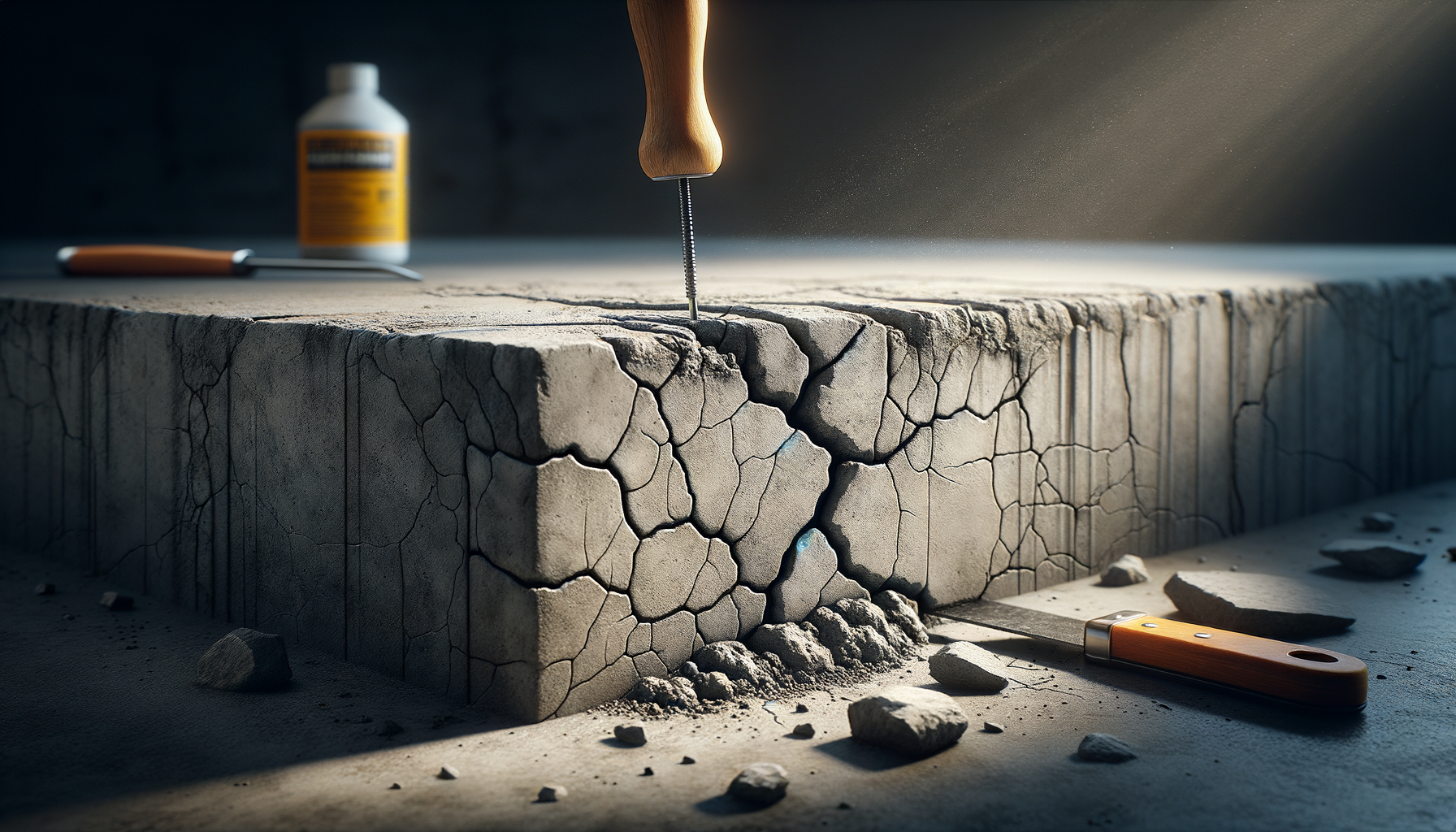What Are Concrete Foundation Cracks?
Fixing cracks in the concrete foundation of your home is really important. Not all cracks are the same, so it’s good to know about the different types. Here are some common ones:
-
Hairline Cracks
- Very thin and small.
- They don’t hurt the structure much but can look ugly.
-
Shrinkage Cracks
- These happen when concrete dries and shrinks.
- They are usually small and not a big problem.
-
Settlement Cracks
- These occur when the soil under the foundation moves.
- These might need a closer look because they can mean uneven settling.
-
Structural Cracks
- These are wider and may show serious problems.
- Need fixing quickly to avoid more damage.
Why Do Concrete Foundations Crack?
Cracks in concrete foundations can happen for different reasons. Some are natural, and some are due to mistakes. Here’s why they might crack:
-
Drying and Shrinking
- Concrete dries and gets smaller, making small cracks.
-
Temperature Changes
- Hot and cold weather can make concrete expand and shrink, causing cracks.
-
Soil Movement
- Soil can move and cause the foundation to shift and crack.
-
Water Pressure
- Water pushing against the foundation can make it crack.
-
Bad Construction
- Poor materials or bad building methods can lead to weak and crack-prone foundations.
How to Check How Bad the Cracks Are
It’s important to check how serious the cracks are, so you know how to fix them:
-
Thin vs. Wide Cracks
- Thin cracks are usually okay, but wider ones (more than 1/8 inch) might need help from experts.
-
Which Way the Crack Goes
- Cracks that go up and down are usually less serious than sideways cracks.
-
Keeping an Eye on Cracks
- Write down the size of cracks and check if they’re getting bigger.
-
Signs of Big Problems
- Doors and windows that stick, uneven floors, or gaps in walls and ceilings can mean big trouble.
How to Fix Small Cracks Yourself
You can fix small cracks by yourself. Here’s what you need and how to do it:
-
Materials You Need
- Concrete patching compound, epoxy injections, crack sealant, putty knife, and trowel.
-
Steps to Follow
- Clean the Crack: Remove dirt for better fixing.
- Apply the Compound: Use a putty knife to fill the crack.
- Smooth and Level: Make sure it’s even with the surface.
- Seal the Crack: Use sealant to keep water out and stop more damage.
When to Get a Professional
Some cracks need a professional to fix. Call an expert if:
-
Big or Growing Cracks
- Cracks wider than 1/4 inch or ones that are getting bigger.
-
Sideways Cracks
- These can mean major issues and need quick fixes.
-
Multiple Cracks
- Lots of cracks could mean major problems that need an expert’s touch.
-
Signs of Damage
- Sloping floors, separating walls, or water leaks in the basement mean you need professional help fast.
How to Stop Future Cracks
It’s easier to stop cracks before they happen. Here’s how you can prevent them:
-
Good Drainage
- Make sure rainwater flows away from your foundation.
-
Check the Foundation Regularly
- Look for cracks often to catch problems early.
-
Keep Soil Moisture Steady
- Make sure the soil around your house doesn’t get too dry or too wet.
-
Use Foundation Piers
- These can help keep the foundation steady.
Choosing the Right Repair Expert
When you need a professional, picking the right one is important. Here’s how:
-
What to Look For
- Experienced contractors with good reviews and warranties.
-
Questions to Ask
- What methods do you use for repairs?
- Can you give me a detailed estimate?
- How long will the fix take?
How Much Does It Cost?
Know the cost of fixing cracks so you can plan:
-
What Affects the Cost?
- Size of the crack, type of fix, labor, and materials.
-
Average Costs
- DIY fixes are cheaper but only for small cracks. Professional fixes cost more depending on the job.
Common Questions
-
Can All Cracks Be Fixed?
- Most cracks can be fixed, but some might need a lot of work.
-
How Long Will the Fix Last?
- With the right materials, repairs can last many years.
-
Will Insurance Pay for Repairs?
- It depends on your policy and why the crack happened.
-
Will Fixing Cracks Raise Home Value?
- Yes, fixing structural problems can make your home worth more.
Where to Learn More
-
Books and Guides
- "Repairing and Extending Concrete" by P.L. Jain
- "The Homeowner’s Guide to Foundation Cracks" by David T. Branch
-
Online Tutorials
- YouTube channels like "This Old House" and websites like HomeAdvisor.
-
Professional Groups
- The Foundation Repair Association and the Concrete Foundation Association.
By learning about cracks, how to fix them, and when to call a professional, you can keep your home’s foundation strong and make it last a long time.


Leave a Reply